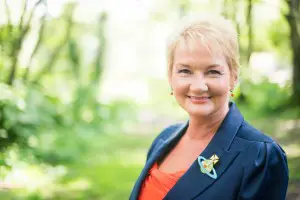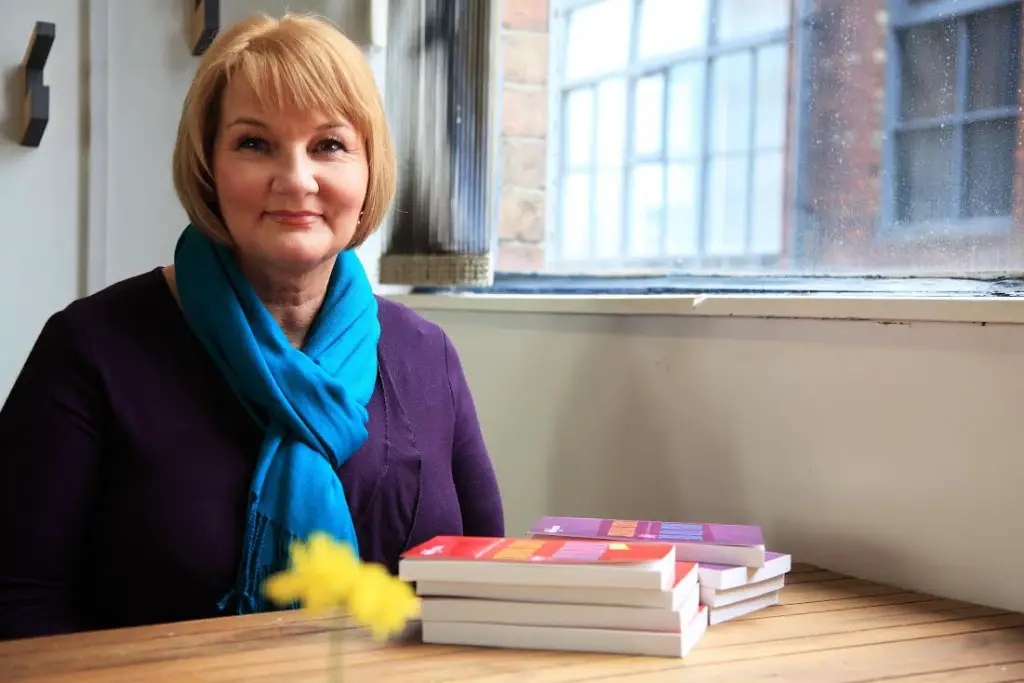A cancer diagnosis always stirs up strong emotions, and there’s one in particular that almost always comes to the forefront: fear.
On one hand, it’s understandable given the meanings we’ve attached to the word itself. On the other hand, there is a growing contingent who feels that doctors are going too far by issuing veritable death sentences and hanging words like “incurable” over their patients’ heads.
In the case of Nina Joy, the word “incurable” itself was the most formidable foe she had to wrestle with.
Now, years after her initial shock, she’s become what she terms a “Cancer Maverick,” exploring alternative therapies and experiencing no symptoms thanks to her multi-facted approach.
She recently spoke with AltHealthWORKS to tell her side of the story and to reveal her personal message for the conventional cancer industry:
AltHealthWORKS: Tell us a little bit about your back story. When were you diagnosed with cancer and what was your original reaction?
Nina Joy: I was diagnosed in 2012. I found out that I had breast cancer which had spread to my lymph, lungs, liver and bones, and told that it was therefore incurable.
I was devastated – it felt like I had been given a certain death sentence, and I still had lots of living to do, ambitions and hopes and dreams to fulfill.
AHW: So the doctor said it was “incurable,” correct? Did you believe him (or her) at first, and what is your opinion of that now?
NJ: I knew nothing about cancer at the time of my diagnosis. Luckily nine of my close family or friends had had cancer, so in the absence of any knowledge or experience, of course I believed the doctors.
As the cancer had spread to do many places on my initial diagnosis, it was obvious that this was a very serious situation. Although the survival rate for breast cancer is good, that is not true for metastatic or secondary breast cancer (which is what it is called once it has spread from the original site).
I do now accept that it may well be incurable. However, what I didn’t appreciate then is that I could happily and healthily co-exist with cancer, and how good life can be despite the dire prognosis.
AHW: You opted not to do traditional chemotherapy. What led to that choice, and how do you feel about it now?
NJ: I initially opted out of chemotherapy, because of the huge collateral damage it does to the body, and more specifically the immune system. It seemed to me that the tumors are the symptom of cancer, and that if I didn’t get to the root cause then surely my body would only make some more?
Although I was told by doctors that there were no other options, I just couldn’t believe that was true – even though I didn’t actually know what those options were. I researched and found the 3e Centre in Germany.
They have studied cancer survivors around the world for 25 years, and looked at what they do. They run a five week program to train on the protocol to follow. That felt the right option for me.
AHW: What treatment protocols have you been doing since then and how is it working out for you? Have you had any tests since then, and what have the doctors said?
NJ: I still follow the 3e protocol to this day. However, because of the gentle non-toxic nature of this protocol, it needs time to work. My cancer was so far advanced that I needed something stronger to give me more time.

Nina Joy has overcome cancer and has since gone on to share her story, as well as the importance of knowing your options when it comes to treatments. Photo courtesy of Nina Joy
Through a wonderful charity called Yes to Life I found Patricia Peat of Cancer Options. She is an independent cancer consultant who has made a lifetimes work of studying cancer treatments, from the cutting edge to the downright alternative.
After consulting her on the options available, I opted to go to Professor Vogl in Frankfurt, Germany for a process called TACE (trans arterial chemo embolization).
This is a day patient procedure done under general anesthetic where the chemotherapy is administered directly to the tumors, so is more effective and has much less impact on the rest of the body. I had 8 treatments in all between March and November 2013, and I just got better and better after each one. Of course, I had to find this treatment myself.
Since that time I have followed a regime of supplements and the 3e protocol and am feeling extremely healthy. My liver function and blood tests continue to be normal, and I have no symptoms from the cancer at all.
AHW: One aspect of alternative cancer treatment is your emotional and mind states, which you mention on your blog. When did you realize this and what have you been doing in these areas that has worked for you?
NJ: Before my diagnosis, I was a professional speaker and my subject was Positivity. I had done a great deal of research on how to be positive, and that we are more productive and creative when in a positive frame of mind. Some already knew what to do to get in a more positive place after my diagnosis.
One of the things I did was to concentrate on what I was grateful for – in my case it was that I was thankful it was me facing this and not my sister or even worse my niece. Another was that I journaled each day all my thoughts and fears to help me to process the enormity of the situation and how I felt about it, and what I was going to do about it.
My belief that state of mind is a big contributor to getting back to health has been reinforced as it is one of the key components of the 3e protocol, and in many books I have read, one example is ‘How the Mind Can Heal the Body’ by Dr. David Hamilton.
AHW: You wrote a book called ‘The Adventures of a Cancer Maverick.’ Tell us a bit about it and how you decided on that title.
NJ: My first book is The Adventures of a Cancer Maverick which tells my story from diagnosis back to wellness. I decided to use the word Adventure because that is how I choose to look at it.
A time when there are ups and downs, you don’t always know what is going to happen next, and you will learn a lot along the way. Maverick means an independent unorthodox person, and that describes perfectly how I have tackled this situation.
AHW: How does one become a Cancer Maverick, anyway?
NJ: After my first book, I was asked incessantly for details of my protocol and what I do on a daily basis to stay well. My second book ‘How to be a Cancer Maverick’ answers those questions. I also designed a Journal to accompany this book as there are numerous things to work through, and I am a great fan of journaling as it has helped me so much
AHW: If you had one thing to say to the cancer treatment establishment at-large, what would it be?
NJ: I would ask them to be more broad minded and curious about treatments and therapies outside their own training. To never underestimate your patient, and to treat them with respect, as an equal, and as a person with a life and hopes and feelings, not as a disease.
AHW: What would you say to someone who hasn’t researched alternative treatments yet and is also facing a veritable death sentence from their doctors?
NJ: I would say don’t despair. Just because the doctors say there is nothing they can do, there is lots that you can do for yourself. Get informed, build your belief in what is possible by reading stories like mine, take responsibility for your health and be confident once you have decided on your course of action.
And remember to keep love and laughter in your life – they are the best medicine of all.
Nina’s books ‘How to Be a Cancer Maverick’ and ‘Adventures of a Cancer Maverick’ can be found in paperback and digitally on Amazon Kindle by clicking on Amazon.com.
Thanks for installing the Bottom of every post plugin by Corey Salzano. Contact me if you need custom WordPress plugins or website design.





